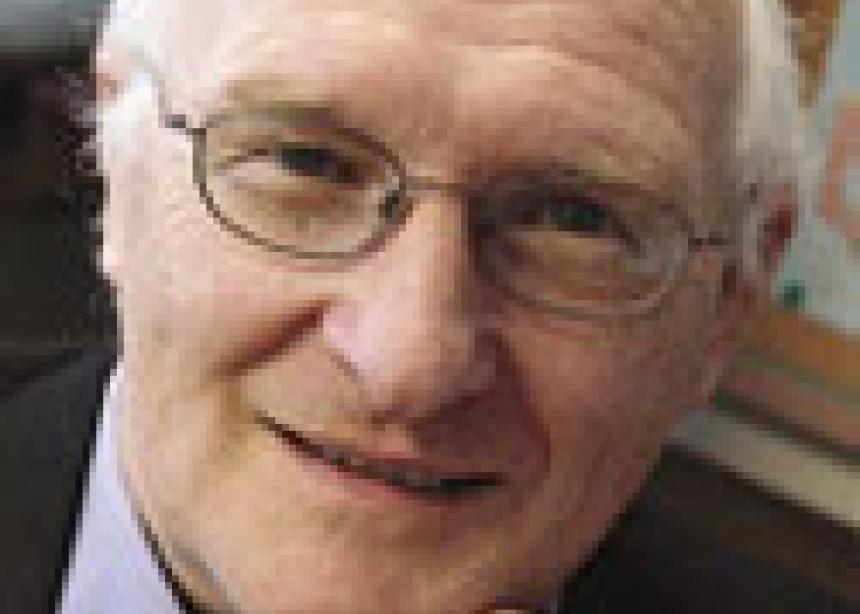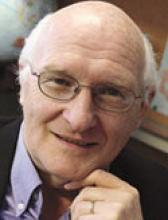Being the church in the 21st century is no easy task, Robert J. Suderman told the delegates and pastors gathered at Eden Mennonite Church, Chilliwack early last month for the annual gathering of Mennonite Church British Columbia. It was a sort of Pauline farewell for the retiring general secretary of MC Canada.
“Some writers suggest that Canada is a country with ‘very hard soil’ for the gospel of Jesus Christ—one of the hardest in the world,” said Suderman, who took time to personally visit all 230 congregations of the denomination during his tenure.
Suderman, who retires on July 31, then proceeded to identify five themes that go to the heart of strengthening the vitality of the church and to attend to its ongoing health:
- Unity and diversity in the life of the church;
- Being a peace church;
- Confessing and witnessing to Jesus Christ as Lord in a pluralistic context;
- Human sexuality in the life of the church; and
- Ecological concerns from a faith perspective.
To address these themes specifically, he listed five corresponding guidelines:
- Covenant together to study the Bible and explore biblical teaching;
- Remain in loving dialogue as the body of Christ, confessing that we are all sinners and in need of God’s grace and the Holy Spirit’s guidance;
- Covenant to show compassion and to pray for each other;
- Participate in an ongoing search for discernment and for openness to each other; and
- Covenant with God to obey what we discern together, through his strength and grace.
“As a national church,” he said in speaking to the divisions that have occurred during his tenure, “we are facing the complex reality that, while different parts of our body [the priesthood of all believers] are reflecting the same foundational Scripture, guided by the same Holy Spirit, which reveals the mind/will of the same God, our discernment appears, at times, to be contradictory and irreconcilable in understanding Christian faithfulness.”
He called for a discernment that is not predetermined, but one that is open to “an inherent tension of sufficiency and surprise.” While discernment does not “presuppose change,” he further taught, “it is open to surprises engineered by the Holy Spirit.”
What is fundamentally at stake, he added, “is our capacity to be the church in fulfilling our ongoing vocation of discerning the kairos of God for our time. The primary issue is not what exactly we will decide about the challenges that face us, but whether we can be the church in doing so.”
In engaging an ecclesial process, he said all of the priests of the “priesthood” are welcome to participate and each voice needs to be heard with integrity and sincerity. This does not mean “full agreement,” but it does mean “taking seriously the voice of the priesthood, even when our personal opinions or preferences may differ.”
Discernment is a vocation to which the church has been permanently called, he concluded. “The heart and soul of facing the need for discernment is our conviction that the church is worth the effort.”



Add new comment
Canadian Mennonite invites comments and encourages constructive discussion about our content. Actual full names (first and last) are required. Comments are moderated and may be edited. They will not appear online until approved and will be posted during business hours. Some comments may be reproduced in print.